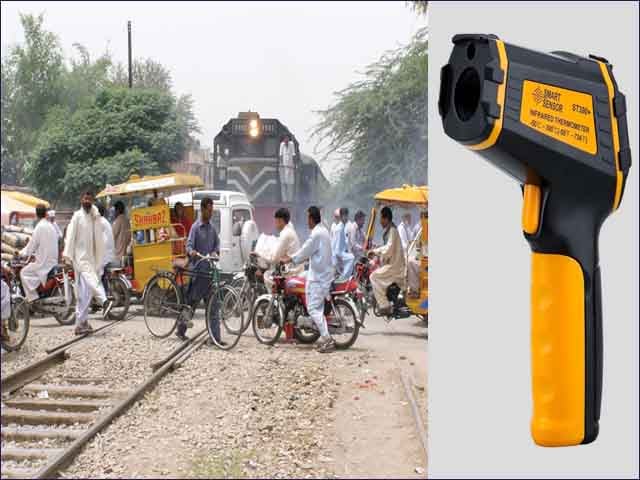Lahore: Pakistan Railways conducted a successful experiment to protect trains from accidents.
Using the latest technology, Pakistan Railways has successfully tested to save trains from accidents, after which now the driver can be identified by infrared laser thermal imaging, including a human being and other living things on the railway track. And the driver will be able to save the train from an accident by applying the brakes in time.
Pakistan Railways often faces accidents at railway crossings or gate crossings, which not only cost the railways crores of rupees but also cost precious human lives.
Railway administration with the help of University of Engineering Technology (UET) has developed such a device, which allows the driver to detect people, animals or any kind of transports coming on the railway track at a distance of one kilometer in heavy fog or darkness. With the help of infrared thermal imaging technology, it will quickly identify.
The Railways has installed these devices with the engines of its various trains, at a cost of Rs 15 lakh only. Pakistan Railways conducted experiments by installing this device in trains running in different cities of the country, which proved to be successful.
After the success of infrared thermal technology, the railway administration has started installing these devices on all trains in a phased manner. Railways will start using this advanced technology in almost all its trains by the end of this financial year.
(function(d, s, id){
var js, fjs = d.getElementsByTagName(s)[0];
if (d.getElementById(id)) {return;}
js = d.createElement(s); js.id = id;
js.src = “//connect.facebook.net/en_US/sdk.js#xfbml=1&version=v2.3&appId=770767426360150”;
fjs.parentNode.insertBefore(js, fjs);
}(document, ‘script’, ‘facebook-jssdk’));
(function(d, s, id) {
var js, fjs = d.getElementsByTagName(s)[0];
if (d.getElementById(id)) return;
js = d.createElement(s); js.id = id;
js.src = “//connect.facebook.net/en_GB/sdk.js#xfbml=1&version=v2.7”;
fjs.parentNode.insertBefore(js, fjs);
}(document, ‘script’, ‘facebook-jssdk’));


